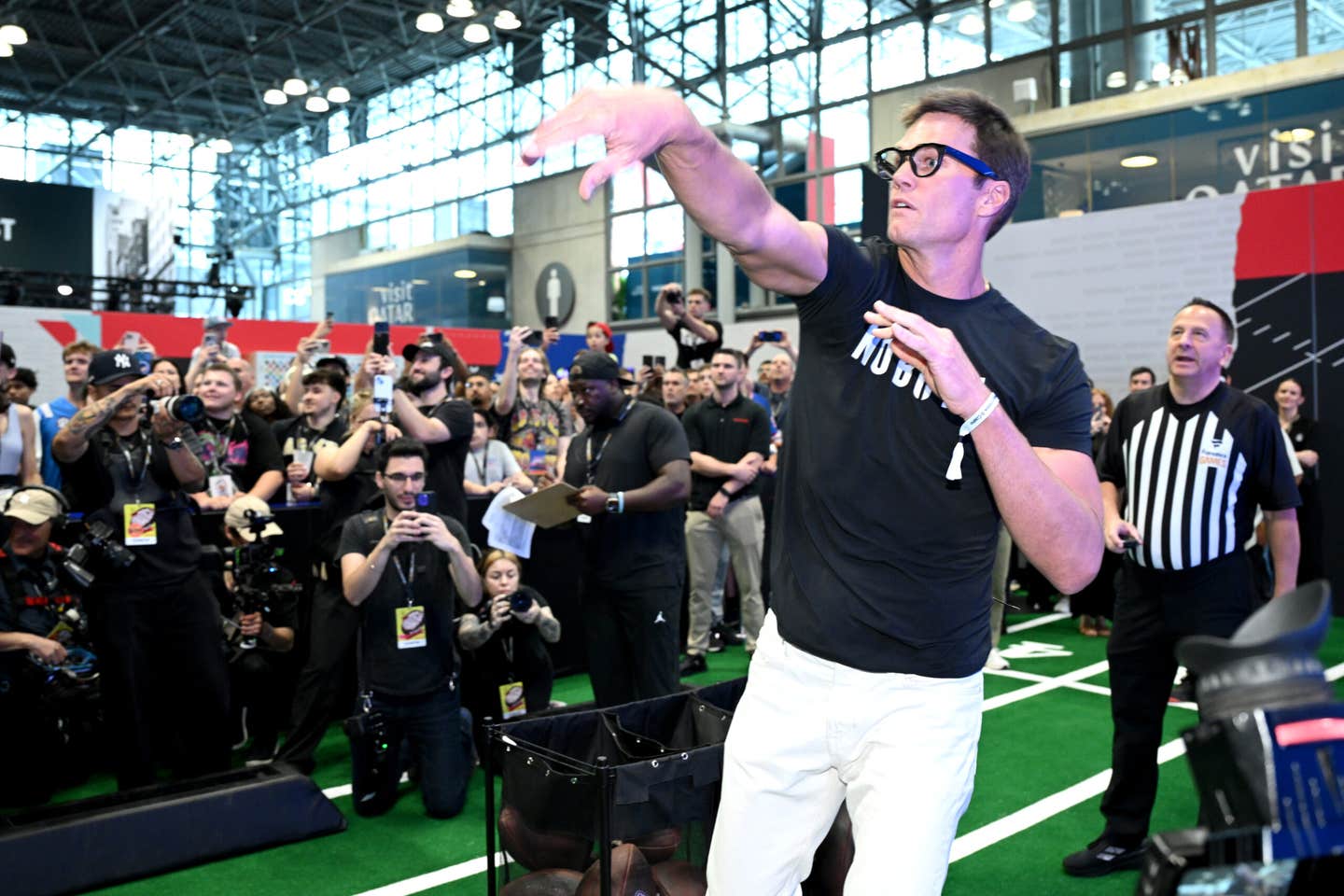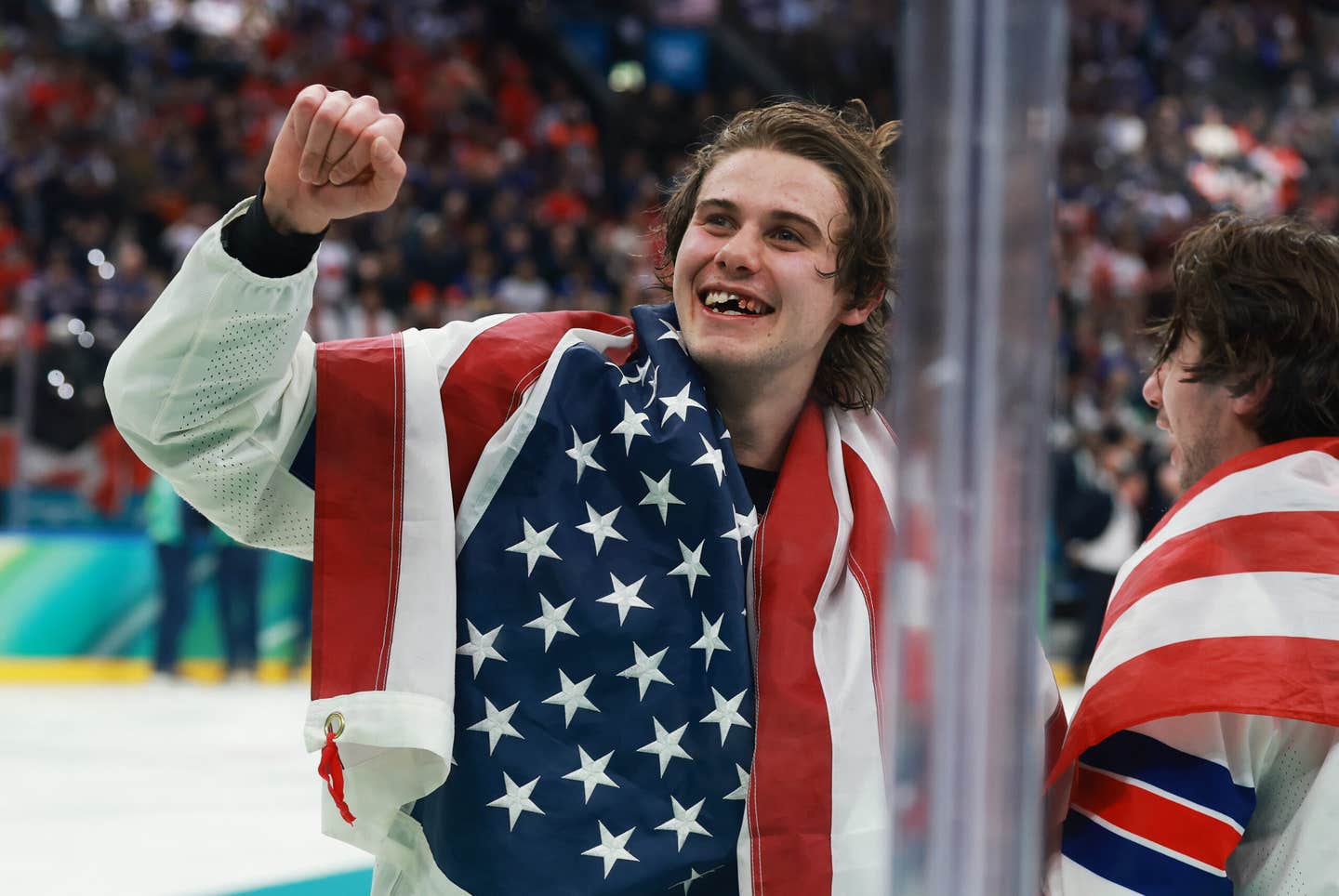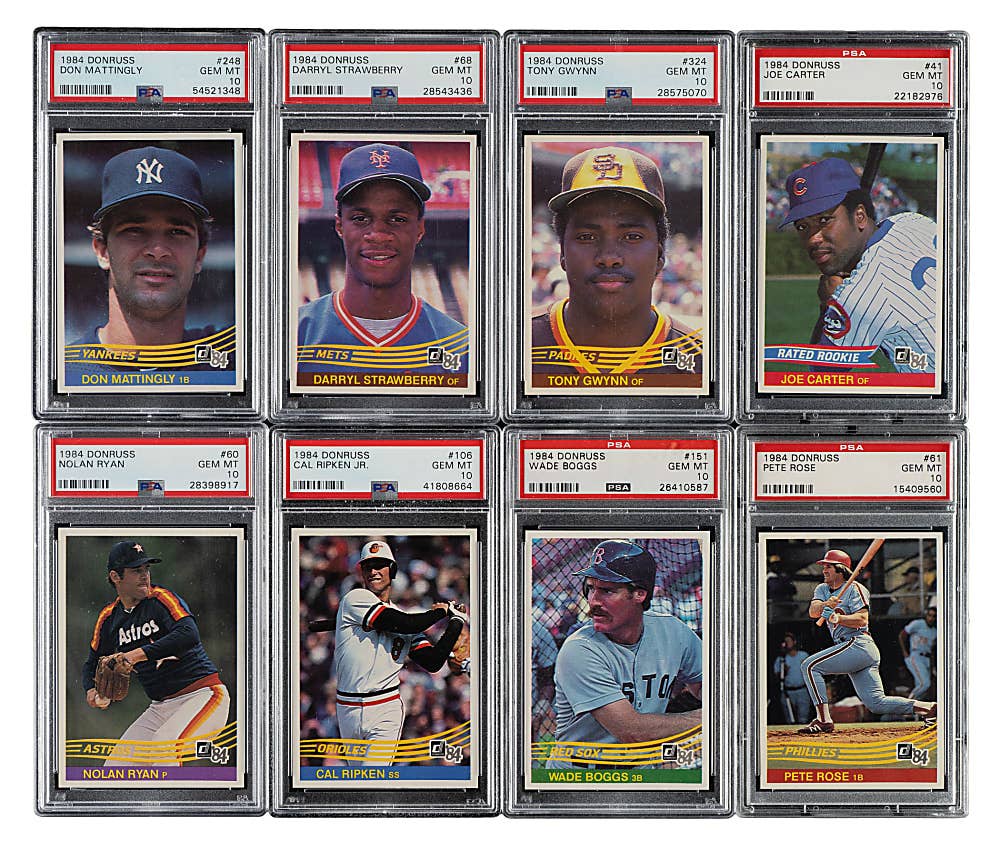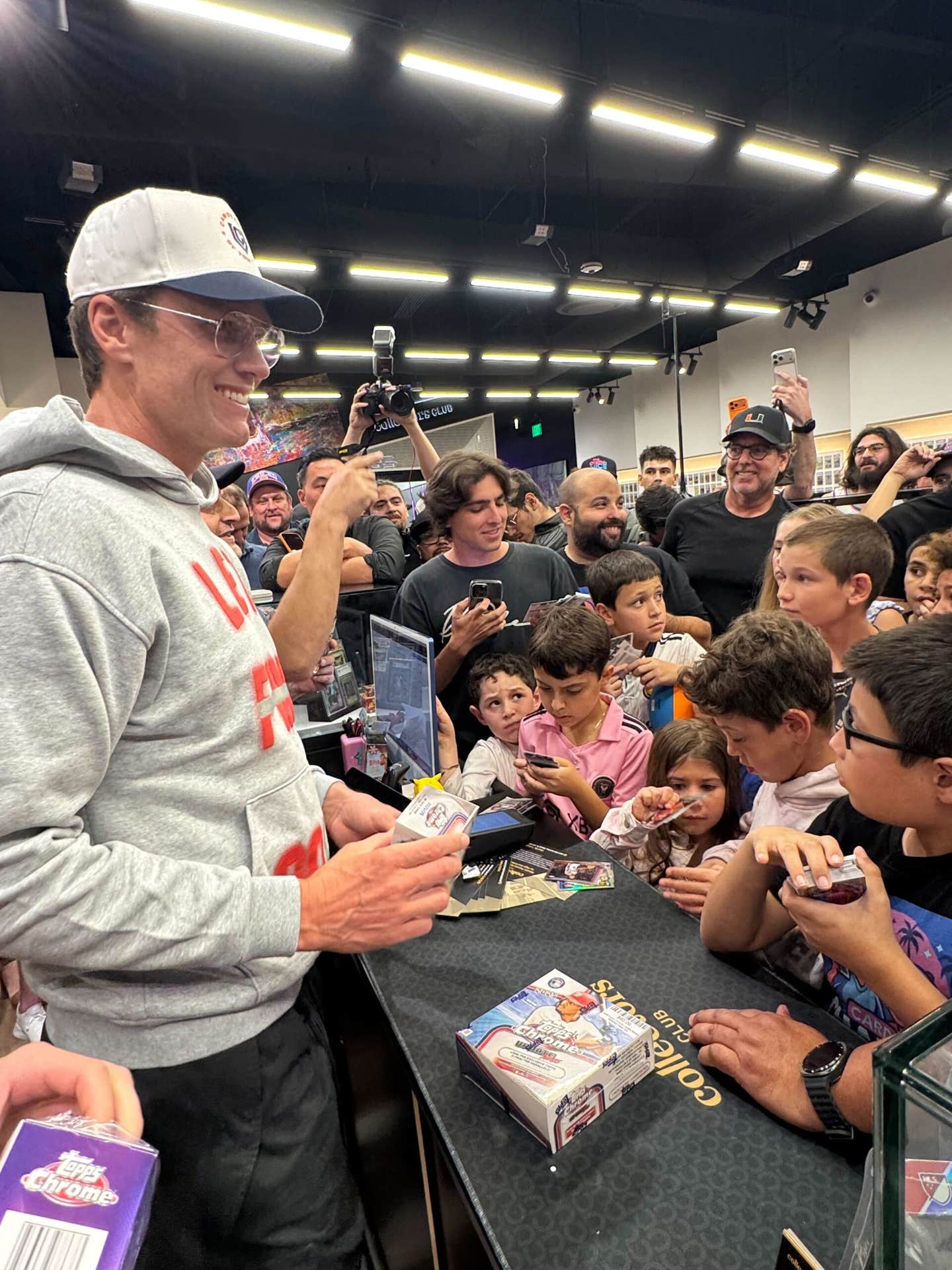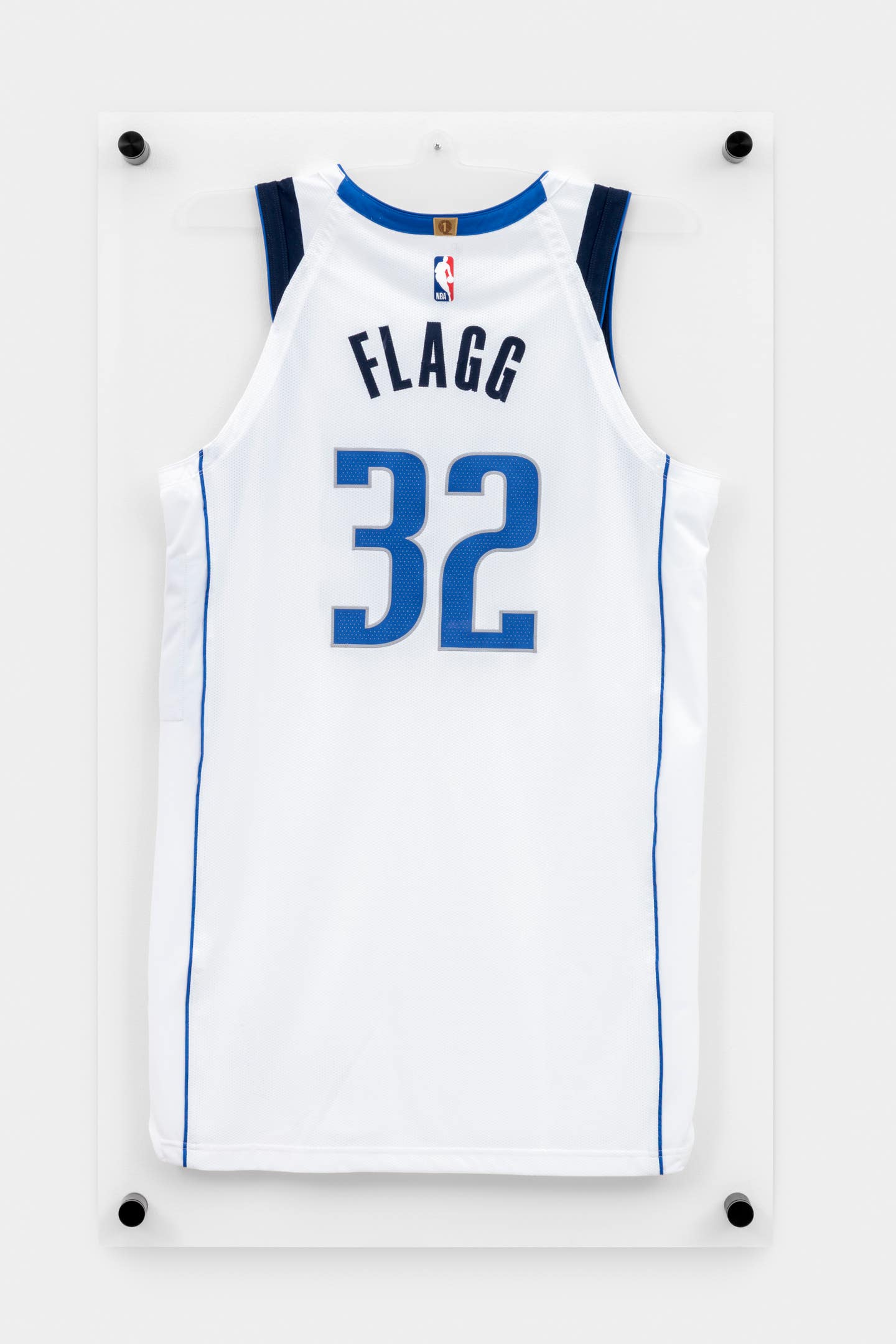News
Jerry West Still Thriving – in West Virginia
By Paul Post
Jerry West’s retired jersey hangs from the rafters at the Staples Center in Los Angeles, and his plaque is displayed at the Naismith Memorial Basketball Hall of Fame in Springfield, Mass.
However, the real treasures from West’s fabulous career are found in his native West Virginia, at The Greenbrier, a five-star resort where his restaurant – Prime West 44 – is a veritable showcase of prized memorabilia. More than 100 pieces are on display, including his 1960 Olympic gold medal.
From coast to coast, he’s still one of the most recognizable basketball legends ever. In fact, the official NBA logo is an image of West driving to the hoop.
“Basketball was my only outlet as a young boy to use my very vivid imagination,” he said. “I could play alone and over time began to see great improvement in my skills.”
From high school, he became an All-American at West Virginia University, leading the Mountaineers to the 1959 NCAA Finals. A year later, he was co-captain with Oscar Robertson of the U.S. team that captured a gold medal at the 1960 Olympics in Rome. West and the “Big O” comprised one of the greatest backcourt tandems of all time.
The squad also had future Hall of Famers Jerry Lucas (Knicks) and Walt Bellamy, the U.S. team’s center, who had a prolific 14-year NBA career (1962 Rookie of the Year, four-time All-Star).
The Americans crushed Brazil, 90-63, in the gold medal game.
During the medals ceremony, West and Robertson represented the U.S. atop the podium. In the book, Rome 1960: The Olympics That Changed the World, author David Maraniss said, “West was surprised by the emotions that overwhelmed him at that moment, as the flag rose, the anthem played and he stood side by side with his teammate, representing his country at a difficult moment in history. Robertson was equally moved and felt a sense of brotherhood with his fellow captain.”
Robertson said, “We were on the stands for the gold medal, one black and one white, with all the troubles that were going on in the country at that particular time, which people don’t like you to talk that much about, the race relations then. For (the two of us) to stand there and take that medal for the country, it meant a lot.”
From there, the next step for West was obvious – the NBA.
During a 14-year career with the Lakers, he helped lead L.A. to nine appearances in the NBA Finals, including a league championship in 1972. He was a 14-time All-Star, and named one of the 50 Greatest Players of All-Time.
His restaurant’s display cases include numerous photos, paintings, jerseys and basketballs marking career milestones such as his 18,000th career point recorded on Jan. 6, 1970, in Kansas City and his first NBA coaching win. On Dec. 4, 1973, he became the third man in NBA history to reach the 25,000-point plateau, against the Phoenix Suns at the former Los Angeles Forum. Adidas presented West with a Golden Shoe Award, a gold-plated basketball shoe.
There’s also a handsome bronze bust of West and numerous rings. A Sports Illustrated cover shows he and New York Knick Walt Frazier getting ready for the NBA Finals.
Most items were given to him, a by-product of his tremendous success on the hardcourt. He seldom seeks out collectibles on his own.
“I have never been a collector of autographs or memorabilia,” West said. “The only autograph that I’ve ever asked for was for my sons when I met then President Clinton at the 1994 NCAA Basketball Championship, which his Arkansas team won.”
Nicknamed “Mr. Clutch” in Game 3 of the 1970 NBA Finals, West made one of the most famous shots ever, a 60-foot heave that tied the game at the buzzer.
However, the 1960s was a difficult decade for West and the Lakers. They won six Western Conference titles, but lost to the Celtics each time, although he was named NBA Finals MVP in ’69.
The next year brought more frustration, as this time it was the Knicks who defeated L.A.
Two years later, in 1972, West finally won an elusive championship ring.
Growing up West
Born May 28, 1938, in Cheylan, W.Va., West actually enjoyed football more than hoops, but there weren’t many opportunities to play. “Basketball gave me the most satisfaction because there were no formal organized sports leagues at that time where I grew up,” he said. “My older brother David played basketball, but not really with me, as I was too young to join his games. I was really self-taught, as I would spend hours alone playing and honing my skills.
“Two very influential coaches were my college coach Fred Schuss – who later became my coach with the Lakers – and Pete Newell, who was our Olympic team coach. They both were great teachers and mentors.”
The NBA season was delayed by a lockout last year, but fans quickly returned to most arenas, unlike past labor strife in other sports (baseball, football) where it took time for attendance to rebound.
“I think that the athleticism and grace of pro basketball have really caught the interest of the fans,” West said. “The intimacy of the game – closeness of the court and the greater visibility of players than in other sports – gives fans the ability to identify what they like about their favorite players. With the shortened season, the fans seemed to understand just how important each game was as the teams formulated their ambitions and hopes for the playoffs.”
When he retired, West’s name was on nearly every page of the record books. He scored 25,192 points (third), averaged 27 ppg (fourth), made 7,160 free throws (second) and dished out 6,238 assists (fifth). West was equally adept on the defensive end, named to the NBA All-Defensive First Team four times.
Next, West coached the Lakers from 1976-79 and became general manager prior to the 1982-83 season. The Lakers won seven titles during his tenure in that position, thanks in no small part to his 1996 trade for Kobe Bryant and signing of free agent Shaquille O’Neal. In 1999, West signed six-time NBA champion coach Phil Jackson.
Thanks to West’s off-court engineering, the Lakers won three straight league titles from 2000-02.
Seeking a new challenge, he then left L.A. to become general manager of the Memphis Grizzlies, helping guide the team to their first-ever playoff berth and was named 2004 NBA Executive of the Year. In his latest job, he joined the Golden State Warriors in May 2011 as head consultant to new owner Joe Lacob.
He also made news off the court in 2011 by co-authoring an autobiography, West by West: My Charmed, Tormented Life that became a New York Times best-seller.
Despite a career that’s taken him to basketball’s lofty heights, West has never forgotten his West Virginia roots. He owns a home in The Greenbrier Sporting Club, the private residential sporting community on the resort’s 6,500-acre estate, and greets restaurant customers whenever he’s in West Virginia.
“My upbringing here is really the foundation of my life,” he said.
Several years ago, agriculture and coal baron Jim Justice, a Forbes 400 member, purchased The Greenbrier and began restoring the resort to its former glory. It was only natural that West, a West Virginia native son, should have a place of prominence there.
Prime West 44 opened in October 2009, offering a variety of fine dining options.
“Initially, my wife Karen and I composed a menu that we like for the restaurant with the steakhouse theme in mind,” West said. “We continue to monitor the menu and food quality so that the selections stay at a premium level. We are very fortunate to have a wonderful staff and extremely professional chefs that make the dining experience memorable.”
One of the restaurant’s most famous items is a 44-ounce steak.
“I wouldn’t recommend one person trying to eat it,” West joked.
The resort’s famous golf course is home to The Greenbrier Classic, a premier event on the PGA Tour. At one time, legendary Sam Snead made this his home course and a variety of memorabilia from his career is on display in the clubhouse, including numerous old photos, balls he used to record holes-in-one and many autographed items.
Basketball fans, however, can’t help gravitating to Prime West 44 where the NBA Hall of Famer’s collectibles are found. Always humble, West is proud of his many accomplishments, but feels a bit uncomfortable showing off all his awards.
“It’s almost like a shrine to me,” he said, smiling.
Paul Post is a freelance contributor to SCD. He can be reached at paulpost@nycap.rr.com.



